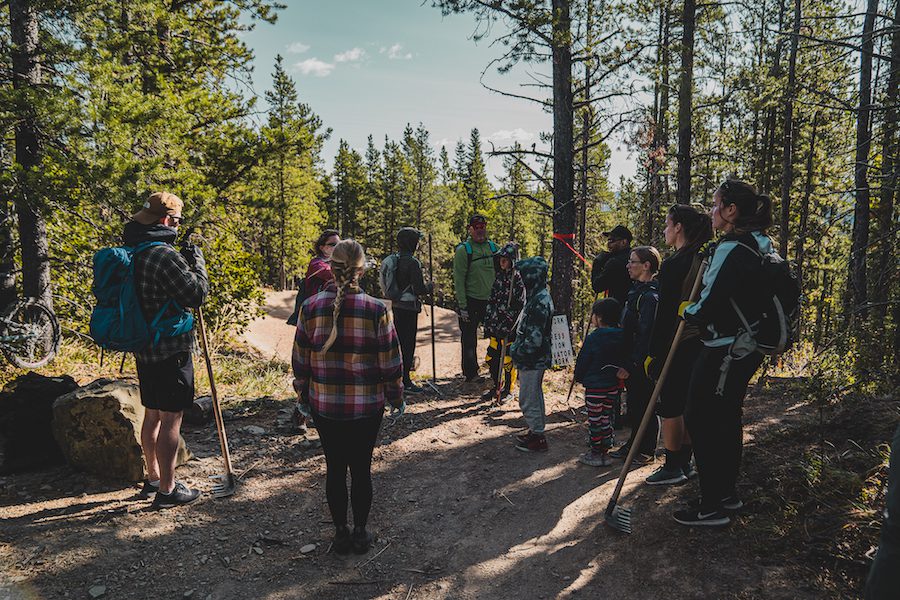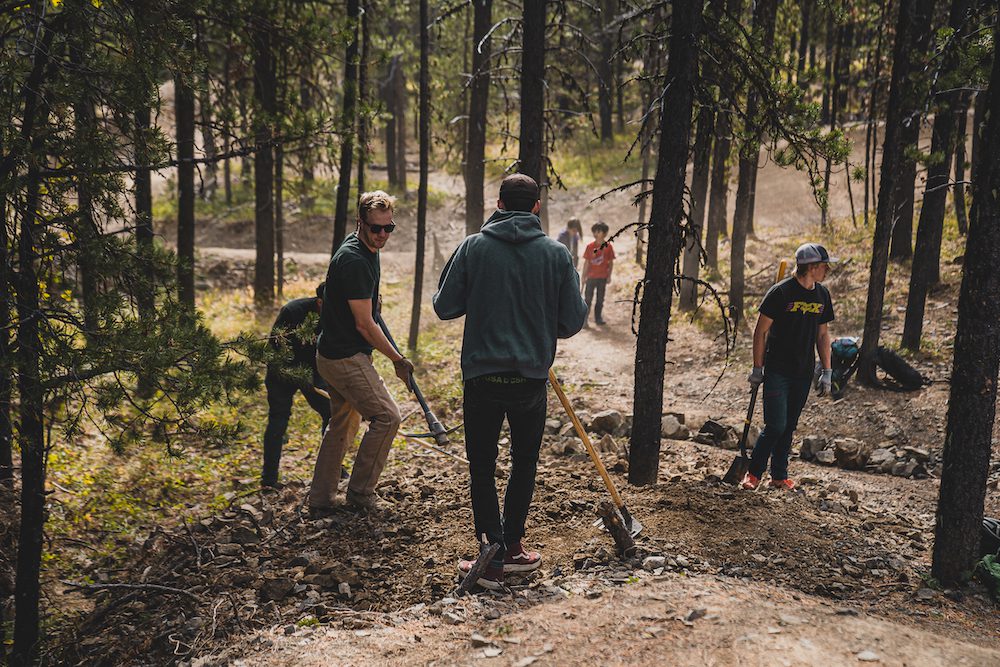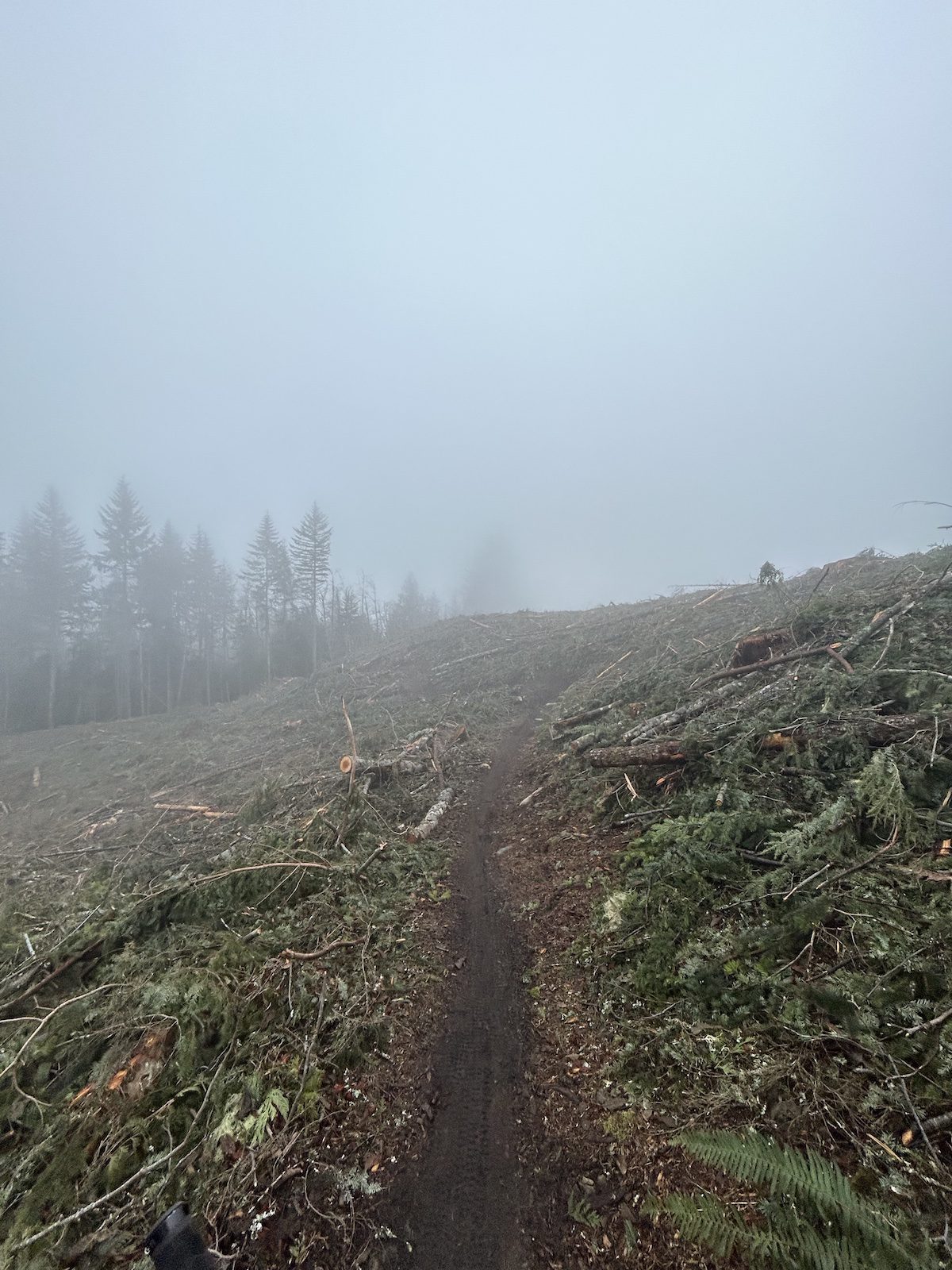Alberta mountain bikers banding together to fight clearcut of two popular riding areas
GROW Kananaskis brings riders, hikers and other trail users together to preserve area near Calgary

Alberta’s mountain bikers are working together with hikers and other user groups to oppose two planned clearcuts that would decimate two popular riding areas. Moose Mountain Bike Trail Society (MMBTS) is working together with Bragg Creek Trails Association (BCTA) and other user groups to oppose to planned logging on Moose Mountain and West Bragg Creek.
Located less than an hour outside of Calgary, Alta. in the Kananaskis area, the two mountains are massively popular with Albertans and with visitors. About 738 hectares, combined, is slated to be logged as early as 2025.
To oppose the planned logging, GROW Kananaskis has two planned actions this week. There is also an online petition that currently has over 17,400 signatures calling for change.
Growth in recreation up against outdated logging plans
Moose Mountain and Bragg Creek are both massively popular riding areas. That’s due to their proximity to Calgary. But it is also the result of thousands of hours of volunteer work by both organizations (some of which, both organizations point out, was funded by the province). The current harvest plan is the result of an agreement that dates back to 2005, long before the explosive growth of recreation in the two ares.
For Jeff Woodgate of GROW Kananaskis, the change in how the areas are being used demands a reconsideration of the decades-old agreement that the current Forest Management Agreement (FMA) comes out of.
“The FMA was based on an agreement that was established circa 2005, and since that time there has been immense change in the area. Recreational usage of this relatively small zone has taken off, driven by the creation of trails systems and supporting infrastructure,” Woodgate argues. “The government needs to audit the agreement, appropriately value the different usages, and weight the impacts of clearcutting this area on its population.”
The current harvest plan was presented by Spray Lakes Sawmills. In November 2023, West Fraser acquired SLS. West Fraser is hosting an open house Wednesday, May 8 to allow public consultation on the West Bragg and Moose Mountain harvest plan as well as another in the upper Highwood watershed.

Aiming for balance between industry and recreation
The conflict between logging and recreational groups isn’t new. MMBTS executive board says they do not oppose all logging, but question the current value of the two proposed cuts. They say that, for their users, the current plan doesn’t add up.
“MMBTS is not anti-logging, but we’re not excited about logging activities that impact our trails. As stewards of the trails, area stakeholders, and Alberta Forestry & Parks (AFP) partners, MMBTS needs to use our voice to ensure the best possible outcome for the impacted trails. We have invested many years, many, many hours of manual labour, and hundreds of thousands of dollars to build this incredible trail network that is used by thousands of riders each year.”
These factors weren’t considered in the original FMA as, when it was created MMBTS didn’t exist. Nor did Bragg Creek Trails (BCT).
“There was no advocate for the much smaller community of mountain bikers and hikers,” says the organizations excutive. Now, MMBTS alone has 1,750 annual members. That’s up from around 750 in 2019. “The primary use of the Moose Mountain and West Bragg areas has shifted to recreation, and the number of visitors impacted is in the hundreds of thousands each year between the two.”
As the objection to the plans gains public momentum, MMBTS continues to try work with West Fraser Cochrane (WFC) and AFP, through multiple meetings over several years, to advocate for a better plan.
“We’re questioning their models, we’re providing trail and user data, and we’re sharing the feedback we’re getting from our members. And we’re continuing with our trailbuilding plans,” the MMBTS executive says. “We’ve seen positive changes because of this work that will lessen the impacts of the logging on our trails. But the impacts are still there, and we will continue to advocate for a better outcome.”

Social cost outweighs potential profit
For Grow Kananaskis, the objective is clear.
“GROW Kananaskis feels that these two maps, (the harvest plan is presented as two zoomed in maps directly overlying the trail system) need to be omitted from West Fraser Timber’s harvest plan entirely,” Woodgate explains. “There is no partial solution that doesn’t either negatively impact the nature experience for the users or reduce the harvest to the point that it is no longer economically viable.”
For mountain bikers specifically, the maps show the planned clearcuts will impact a long list of trails in both areas. On Moose, Pneuma, Sulphur Springs, Race of Spades and, just recently completed in the last few years, 7-27 all overlap with the cut. Two nearly completed trails, one climb trail and one downhill trail, will be impacted. This after nearly five years in development, according to the online petition.
The planned cuts would come with a social cost, in time and resources put into developing these trails. For many, that exceeds what profit West Fraser could ever extract through logging. The impact of clearcuts on such a popular recreation area doesn’t just sacrifice work already put into the network. It will also impact the future benefits. This includes both in the benefits of recreation and economic impact of related businesses, in a way that Woodgate says, weighed against the West Fraser’s projected profit from this specific cut (neither Grow Kananaskis or MMBTS oppose logging in general), does not add up for Albertans.
Managing public lands “for all Albertans”
In the time between when the FMA for West Bragg and Moose Mountain was first negotiated and when the current plan was announced, much has changed. As mentioned, MMBTS and Bragg Creek Trails did not, as organizations, exist to be part of those negotiations. Over time, both Grow Kananaskis and MMBTS, what is in the public’s interest has changed.
“The primary use of the Moose Mountain and West Bragg areas has shifted to recreation, and the number of visitors impacted is in the hundreds of thousands each year between the two,” the MMBTS executive says. “Infrastructure in the area has been adapted specifically to accommodate recreational trail users, with government-funded improvements to parking areas, day use facilities, and trail building and maintenance. The density of the trail networks has increased drastically with the addition of hundreds of kilometers of trails between the two networks.”
No matter what happens with the current plans, MMBTS isn’t going to stop working to develop the network it maintains.
“We will still be here and we will still use and maintain our trails long after the loggers have left, but the user experience will be greatly diminished. We value the trees, the soil, the wildlife habitats and the vistas we ride through just as much as we do the flow of the trail, and this value can’t be repatriated by a stumpage fee.”
Woodgate says the costs to the public now clearly outweigh any public benefits that logging arguably has.
“The Government of Alberta is responsible for managing public lands for all Albertans. 20 years ago they made a decision to manage this specific area in a manner that likely made sense for Albertans at that time. Change has occurred and those decisions need to be revisited.”
West Fraser’s open house takes place Wednesday, May 8. Grow Kananaskis is planning a protest ride, hike and climb up Moose Mountain on Thursday, May 9. If you’re not able to be physically present, there is also an online petition objecting to West Fraser’s planned clearcuts.

